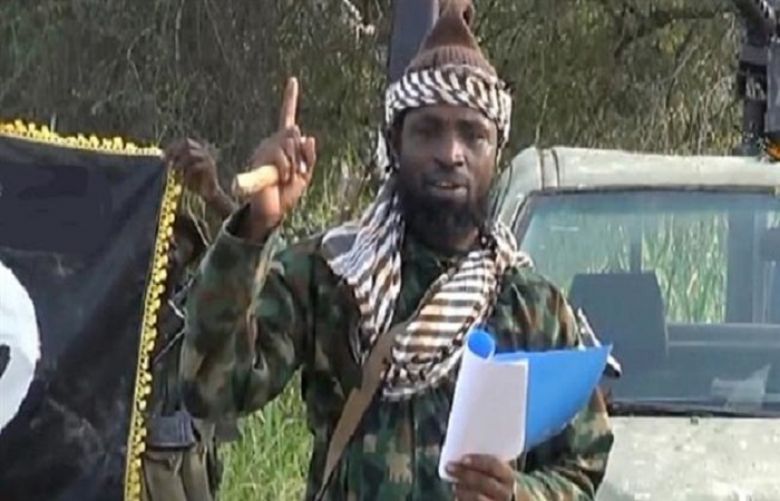The ringleader of the Nigeria-based Boko Haram terrorist group has urged the militants to beef up extreme violence against people, denying recent claims by the government that the group has been crushed.
In a video posted on YouTube purportedly by Boko Haram on Friday, a man, standing in front of almost a dozen armed men and a couple of pickup trucks in an undisclosed location, identified himself as Abubakar Shekau, the leader of the terror group, and read a statement, calling on his fellow militants to "kill, slaughter and abduct all the infidels... and detonate bombs everywhere."
"I am here, well and alive," he said, rejecting the Nigerian government's earlier reports that he had been fatally wounded in anti-terror air raids.
He also denied that the army had ultimately defeated terrorists after it captured Boko Haram’s last major stronghold. "The battle is just beginning."
"You should not be telling lies to the people," he said, referring to Nigerian President Muhammadu Buhari, who announced on Christmas Eve that the terrorist group had been defeated and driven away from its last known bastion deep inside the thick Sambisa Forest in the northeastern volatile state of Borno.
President Buhari, who came to power in 2015, under the motto of crushing Boko Haram, also said the terrorists were on the run and no longer had a place to hide.
The group, whose name means "Western education is forbidden," has pledged allegiance to Daesh, a terrorist group operating mostly in Iraq and Syria. Back in early August, Daesh reportedly terminated Shekau’s seven-year-long leadership by replacing him with Abu Musab al-Barnawi, a former spokesman for Boko Haram.
Shortly after the announcement, Shekau released an audio message saying, "People should know we are still around," apparently defying Daesh and the decision to oust him.
This video grab image, created on August 14, 2016, from a video released by Boko Haram, shows a militant at an undisclosed location standing in front of schoolgirls kidnapped from Chibok, Nigeria, in April 2014. (Via AFP)
Boko Haram terrorists started their reign of terror in 2009 with the aim of toppling the Nigerian government. In their heyday in early 2015, they managed to control an area in the country’s northeast as vast as Belgium, but they lost most of that territory over the last year as the Nigerian government, along with troops from some affected neighboring countries such as Chad and Cameroon, launched a joint military campaign to eradicate the group.
Over the past several months, Boko Haram had resorted to carrying out sporadic raids against villages and bomb attacks against civilians in urban areas, killing hundreds of people.
Following the seizure of the Sambisa camp, Nigeria’s military declared that the former game reserve would be converted to a military training base in an attempt to prevent the militants from returning.
On April 14, 2014, Boko Haram kidnapped 276 girls from their secondary school in the northeastern town of Chibok in Borno. About 80 of the girls managed to escape afterward or were swapped for a number of Boko Harm prisoners, but the fate of the rest remains unknown. In the Friday’s video, Shekau made no mention of the remaining captive girls.
Boko Haram terrorists have so far killed more than 20,000 people and forced over 2.7 million others from their homes.







